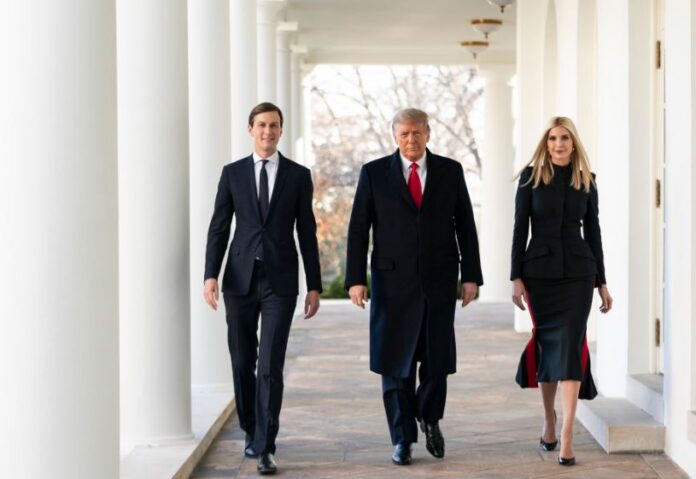WASHINGTON—Donald Trump’s return to the Oval Office has sent ripples across the globe, as the newly inaugurated 47th U.S. president unveiled bold and controversial policies during his first news conference. World leaders are once again grappling with Trump’s unconventional approach to foreign policy.
NATO Spending Demands
In a surprise move, Trump called on NATO members to more than double their pledged defense spending to 5% of GDP. This demand, deemed nearly impossible for allies struggling with economic challenges and welfare commitments, appears to be a negotiating tactic, as even the U.S. does not allocate such a large share of its GDP to defense. Nevertheless, Trump’s push has reignited tensions with Europe, bringing NATO back into his crosshairs.
Also Read: Russia Praises Trump for ‘Changing the Course of History’
Panama Canal Controversy
Trump reignited debate over the Panama Canal, branding its handover to Panama as a “foolish gift.” He falsely claimed, “China is operating the Panama Canal and we didn’t give it to China. We gave it to Panama and we’re taking it back.” These comments have raised eyebrows internationally, with critics highlighting the inaccuracy of his statement.
Mexican Cartels Designated as Terrorist Organizations
The president escalated his stance on Mexican drug cartels, designating them as foreign terrorist organizations. When asked about potential military action, Trump refused to rule out a high-stakes raid into Mexico using special forces, raising alarm over the risks such a move would entail.
Bidding War for Foreign Visits
Trump attempted to leverage U.S. trade deals for political advantage, stating that nations spending $500 million on American goods could secure his first official foreign visit. This unconventional approach highlights Trump’s focus on economic diplomacy.
Pressure on Putin
In an unexpected shift, Trump increased pressure on Russian President Vladimir Putin to seek peace in Ukraine. He criticized the ongoing conflict, stating that it “does not make him look very good,” signaling a potential pivot in U.S.-Russia relations.
Tariff Threats Loom
While Trump refrained from immediately imposing sweeping tariffs, he reiterated his admiration for tariffs, calling them the “most beautiful word.” He announced plans to impose 25% duties on Mexican and Canadian imports beginning February 1, raising fears of a trade war across North America. Trump also hinted at further tariffs on China but left their implementation date ambiguous, potentially using them as leverage ahead of a planned visit to Beijing.
Economic Fallout
Despite Trump’s claims that tariffs would yield significant financial benefits, economists warn that such measures could drive up costs for American consumers, increasing inflationary pressures on essentials like food, lodging, and fuel. Addressing these economic challenges is crucial, as they played a key role in his 2024 electoral victory.
Trump’s aggressive start to his second term underscores his determination to project power, but whether these bold moves will pay off remains uncertain.
Key Points:
- NATO Spending Demand:
- Trump called for NATO allies to increase defense spending to 5% of GDP, a demand viewed as unrealistic for nations facing economic challenges.
- Panama Canal Controversy:
- He criticized the U.S. handover of the Panama Canal, falsely claiming China operates it and suggesting plans to “take it back.”
- Mexican Cartels Designated as Terrorists:
- Trump officially labeled Mexican drug cartels as foreign terrorist organizations and did not rule out military action, including special forces raids in Mexico.
- Foreign Visit Bidding War:
- Trump proposed prioritizing his first foreign visit to nations investing $500 million in U.S. goods, signaling an unconventional approach to diplomacy.
- Pressure on Russia:
- Trump urged Russian President Vladimir Putin to seek peace in Ukraine, stating the ongoing conflict damages Putin’s image.
- Tariff Plans:
- Announced a 25% tariff on Mexican and Canadian imports starting February 1, with additional tariffs on China hinted but not scheduled.
- Economic Impact:
- Experts warn Trump’s tariff policies could raise costs for U.S. consumers, potentially increasing inflation and affecting essentials like food, lodging, and fuel.
- Uncertain Outcomes:
- Trump’s aggressive policies and rhetoric signal a bold start to his presidency, but their long-term effectiveness remains unclear.



